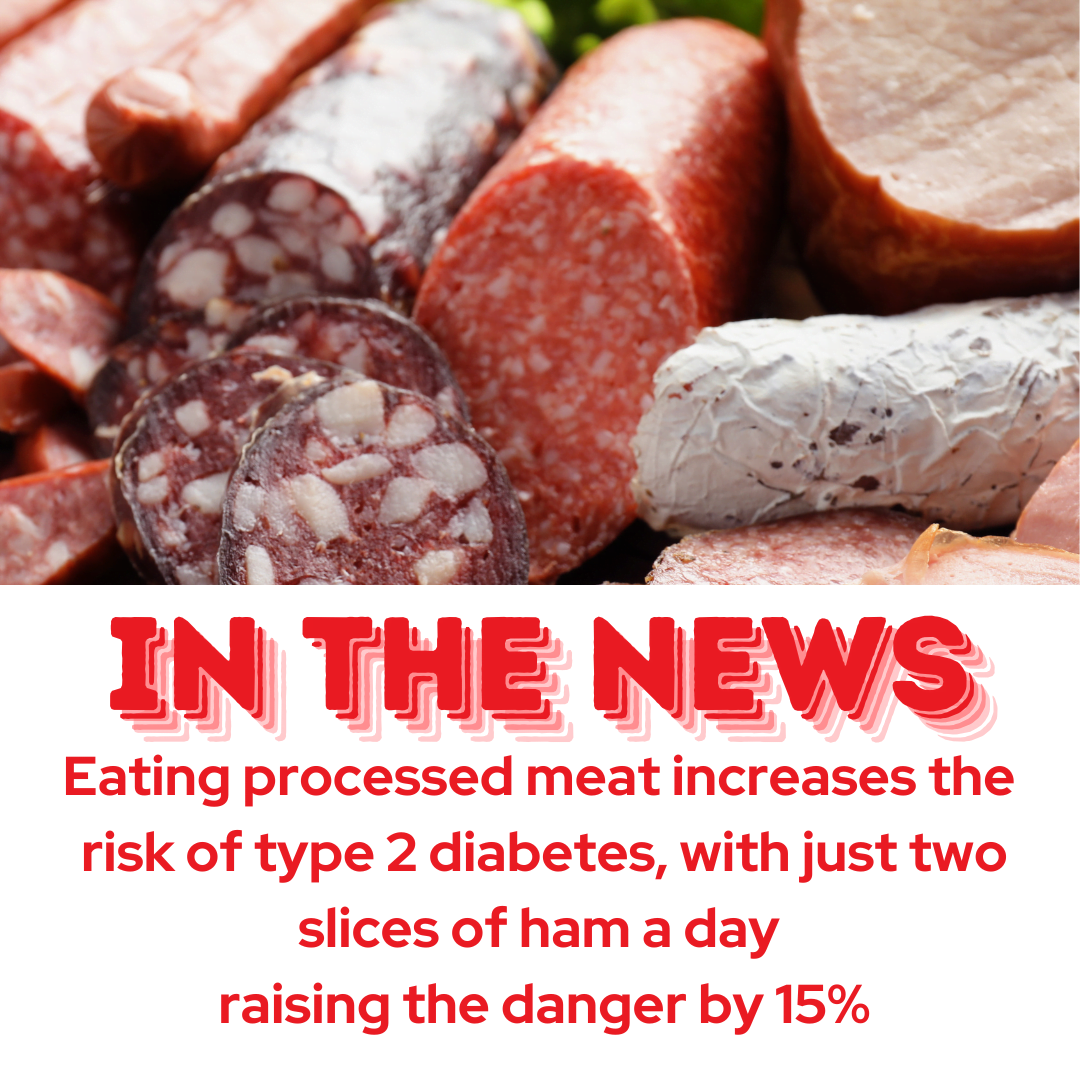
Does Eating processed meat increase the risk of type 2 diabetes?
Consuming two slices of ham a day can indeed raise the risk of type 2 diabetes by 15%, and understanding the mechanisms behind this involves looking at GLP-1, the gut microbiome, and the impact of processed meats. According to research Research led by the University of Cambridge and involving 2 million people worldwide provides the most comprehensive evidence yet of a link between meat and the disease that presents one of the most pressing dangers to global health.
I was asked to make a comment today for the BBC Radio so I thought I would share my thoughts with you here too.
Processed meats, such as ham, bacon, sausages, and some deli meats, contain various ingredients that can be harmful to blood sugar control and overall health.
Here’s a breakdown of some common ingredients found in processed meats and why they might be problematic:
1. Sodium Nitrate and Sodium Nitrite: These preservatives are used to maintain colour and prevent the growth of bacteria. They can lead to the formation of nitrosamines in the body, which are potent carcinogens. Research suggests that these compounds can also interfere with the body’s natural insulin response, potentially worsening insulin resistance and affecting blood sugar control.
2. High Salt Content: Processed meats are often high in salt, which can contribute to hypertension, a risk factor for diabetes. Excessive salt intake can also cause the body to retain water, leading to swelling and increased blood pressure.
3. Saturated Fats: Many processed meats are high in saturated fats, which can contribute to insulin resistance. Insulin resistance makes it harder for the body to use insulin effectively, leading to higher blood sugar levels.
4. Advanced Glycation End-products (AGEs): These compounds are formed when meats are cooked at high temperatures, such as during grilling or frying. AGEs can promote inflammation and oxidative stress, further impairing insulin sensitivity and exacerbating blood sugar control issues.
5. Additives and Fillers: Some processed meats contain additives, fillers, and sugars to enhance flavour and texture. These ingredients can increase the calorie content and glycaemic index of the meat, potentially leading to blood sugar spikes after consumption.
These ingredients can feed existing viral, bacterial, and fungal conditions that can lead to inflammation and can also wreak havoc with your digestive system, and, weaken your immune system.
Processed meats like ham can lead to insulin resistance, a condition where the body’s cells don’t respond well to insulin. This resistance can blunt the effectiveness of GLP-1, making it harder to control blood sugar levels, thereby increasing the risk of type 2 diabetes.
How the Gut Microbiome plays a role:
The gut microbiome plays a crucial role in our overall health, including how we metabolise foods and regulate blood sugar. Processed meats contain additives and preservatives that can disrupt the balance of beneficial bacteria in the gut.
This disruption can lead to inflammation and a decrease in the production of short-chain fatty acids, which are important for gut health and metabolic regulation. Such changes can contribute to insulin resistance and the development of type 2 diabetes.
Some alternatives to processed meat:
To reduce the risk of type 2 diabetes, consider incorporating these healthier protein sources into your diet: –
Oily Fish: Rich in omega-3 fatty acids, fish is a great alternative that supports heart and brain health.
Legumes: Beans, lentils, and chickpeas are not only high in protein but also fibre, which can help regulate blood sugar levels.
Nuts and Seeds: Almonds, chia seeds, and flaxseeds are excellent sources of protein, healthy fats, and fibre.
Eggs: A versatile protein source, eggs can be prepared in various ways and are beneficial for those looking for low-carbohydrate options.
Dairy: Greek yogurt and cottage cheese are high in protein and can be a part of a balanced diet.
By choosing these alternatives, you can enjoy a varied diet that supports your gut health, helps regulate your blood sugar levels, and reduces your risk of type 2 diabetes. Try meat free days and swap out your deli meat for seeds, beans and more vegetables. If you are concerned about your risk of type two diabetes, working with a nutritionist can make a big difference. Diet and lifestyle support are available here.
